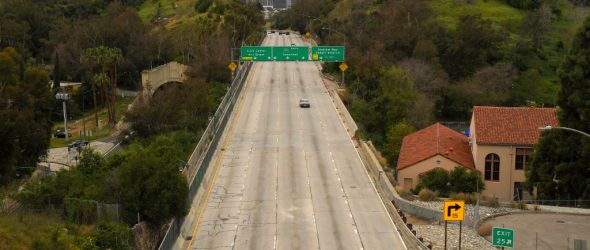The state Department of Public Health issued new directives to all Californians on Saturday morning about what actives are — and aren’t — allowed during the unprecedented stay-at-home order Gov. Gavin Newsom issued to help slow the spread of the deadly coronavirus.
The statewide rules supersede self-quarantine orders issued by counties and cities. Local governments are allowed to put tighter restrictions in place but cannot lower or loosen the statewide rules, such as San Jose’s closure of city parks.
Many of these rules have been in place in the Bay Area since last week.
What’s open?
First, don’t worry. You can still obtain cannabis from licensed retailers who are allowed to stay open under Newsome’s order. Also allowed to be open are:
- Gas stations
- Pharmacies
- Food: Grocery stores, farmers markets, food banks, convenience stores, take-out and restaurants offering delivery
- Banks
- Laundromats/laundry services
- Essential state and local government functions will also remain open, including law enforcement and offices that provide government programs and services.
What’s closed
- Dine-in restaurants
- Bars and nightclubs
- Entertainment venues
- Gyms and fitness studios
- Public events and gatherings
- Convention Centers
- Hair and nail salons
Exempt businesses
Businesses and organizations that provide critical infrastructure for the state are exempted, including health care and public health, public safety, food and agriculture and media. See the full list of exempt sectors here. Exempt businesses do not need to obtain any specific authorization from the state to operate.
School lunch programs
While schools are closed, gran and go meals for students eligible for free or reduced-cost lunch will be provided by local districts.
Helping others
People can leave home to care for friends and loved ones in need. Be sure that you protect them and yourself by following social distancing guidelines such as washing hands before and after, using hand sanitizer, maintaining at least 6 feet of distance when possible, and coughing or sneezing into your elbow or a tissue and then washing your hands. People who have early signs of a cold should stay away from older people.
Hospital and care home visits
Restrictions on visits to hospital and nursing home visits are banned except when a patient is at the end of life. There are limited exceptions, such as going to the hospital with a minor who is under 18 or someone who is developmentally disabled and needs assistance.
Non-essential medical care like eye exams, teeth cleaning, and elective procedures must/should be canceled or rescheduled. If possible, health care visits should be done remotely.
Recreation and exercise
Gyms are closed. But people can go outside for a walk, run or hike. Children can be taken to play parks as long as social distancing is practiced. State parks have closed all indoor facilities and campgrounds, but public access to trails and open spaces are allowed.
Pets
Dogs can be taken for walks, but social-distancing rules must be followed. Sick pets may be taken to veterinary offices.


